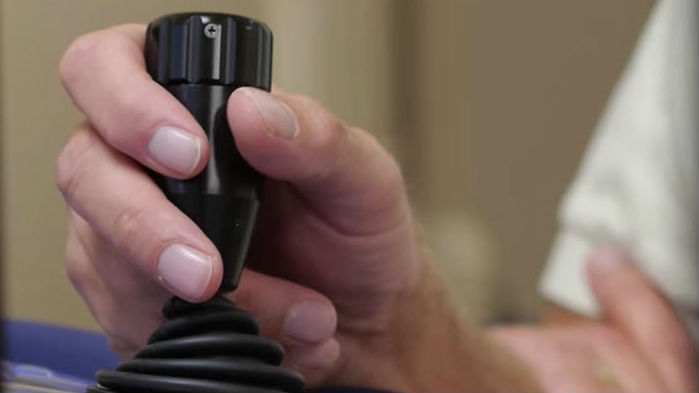DP Operators Caught in Catch-22

Over the past 10 years, more than 1,900 offshore supply vessels (approximately 820 PSVs and 1,080 AHTSs) have been built. The influx of more modern vessels into the market place has led to cheaper day rates and an increased demand for competent crews, says Alessandro Ciocchi, Group Director, Offshore, for ship management company V.Ships Offshore.
Speaking at Sea Asia 2015 in Singapore, Ciocchi said that the current shortage of qualified crew worldwide means shipowners and managers face a number of challenges firstly to recruit the crew and secondly to retain them as there are many alternatives available to seafarers in the current market.
“Dynamic positioning (DP) capability is increasingly becoming the minimum standard for offshore operations because of the increased safety factors this technology brings,” he said. “In addition, as DP technology and training become more specific to each type of vessel, this shortage could be compounded.”
Recruitment Paradox
From a recruitment perspective, the problems are compounded by the “no job, no experience – no experience, no job” paradox, Ciocchi says.
Elsewhere, some in the industry have said that this is one of the reasons that fraud has crept into the DP operators’ market. It has been difficult for new DP operators (DPOs) to meet the industry’s training and accreditation requirements.
A new dynamic positioning operator’s certification scheme came into effect at the start of the year, designed largely to facilitate the entry of DPOs into the industry while also reducing fraud. The new certification scheme, implemented by the Nautical Institute, is supported by a new online platform.
The new scheme and online platform have proved contentious for some in the industry. Freelance mate and DPO Jill Friedman says the new scheme is unlikely to reduce fraud. Instead, she believes it will cause a lot of very experienced DPOs to lose their ability to work.
“The reason there was any fraud (and I don't think it was anywhere near as prevalent as it was made out to be) is because there was virtually no way for a new person to become a certified DPO in the old scheme. That has not changed,” says Friedman.
“The problem was, and still is, that once you go through the induction training course you have to get a certain amount of time on board a DP vessel. It used to be 30 days between courses; now it is 60. So they have made it even harder for a person to get the training they need to advance. Most companies now refuse to take on board anyone who is not fully trained and certified. That is the problem.”
Specialization
Added to that concern is another of the main changes to the new scheme – the introduction of restricted certificates for shuttle tankers and unclassed vessels alongside the established limited and unlimited certificates.
Friedman, like many others, she says, is concerned about getting cut out of sectors of the industry, something that has happened in her non-DP mate roles. Friedman lost her tanker certification when she hadn’t been on a tanker for five years. “So, after 13 years of working on tankers, I can never do it again because no company wants to take anyone on board who is not fully trained and certified.”
The same thing is going to happen with DP, she says. “If things get tough, like they’re getting now, and I have to take a job on some other type of vessel, I might not have enough DP time to renew. What is going to happen then? I will have to start all over again from scratch. After almost 15 years as a DPO, on all kinds of DP vessels, I might lose the license for good if I can’t stay working on DP vessels.”
Friedman is against the concept of DP tickets for different types of ships. “Soon it will be shuttle tankers, then drill ships, then dive boats. This will only make it much harder for DPOs to find work. Yes, there is some difference between the work these vessels do but not enough to need a different license for it - just a little time on board as a junior DPO.”
More Challenges
According to Ciocchi, there are other challenges still to be resolved. These include local content quotas, which can have wide-ranging implications as shipowners and managers are not in full control of whom they choose to employ.
He also foresees an increase in costs. A shortage in crew means crew have more bargaining power over their salaries.
While these issues are still concerning some in the industry, the new scheme, introduced after extensive industry consultation, included other changes designed to help get people into the industry without compromising competence standards and the safety of the industry. The main changes include:
• Reducing the amount of sea time required from 210 days to 120 days. Within the 120 days, it is possible for DPOs to do a sea time reduction course in a simulator that replaces 30 days of operating time at sea.
• These qualifying days are to have a minimum of two hours on the DP desk, up from one hour per day
• Introducing additional assessment after completion of simulator course
• Moving from a log book to an enhanced task book
• Moving from no revalidation requirement to revalidation every five years.
The new requirements are now in a period of consolidation since their review and introduction. – MarEx
The opinions expressed herein are the author's and not necessarily those of The Maritime Executive.
